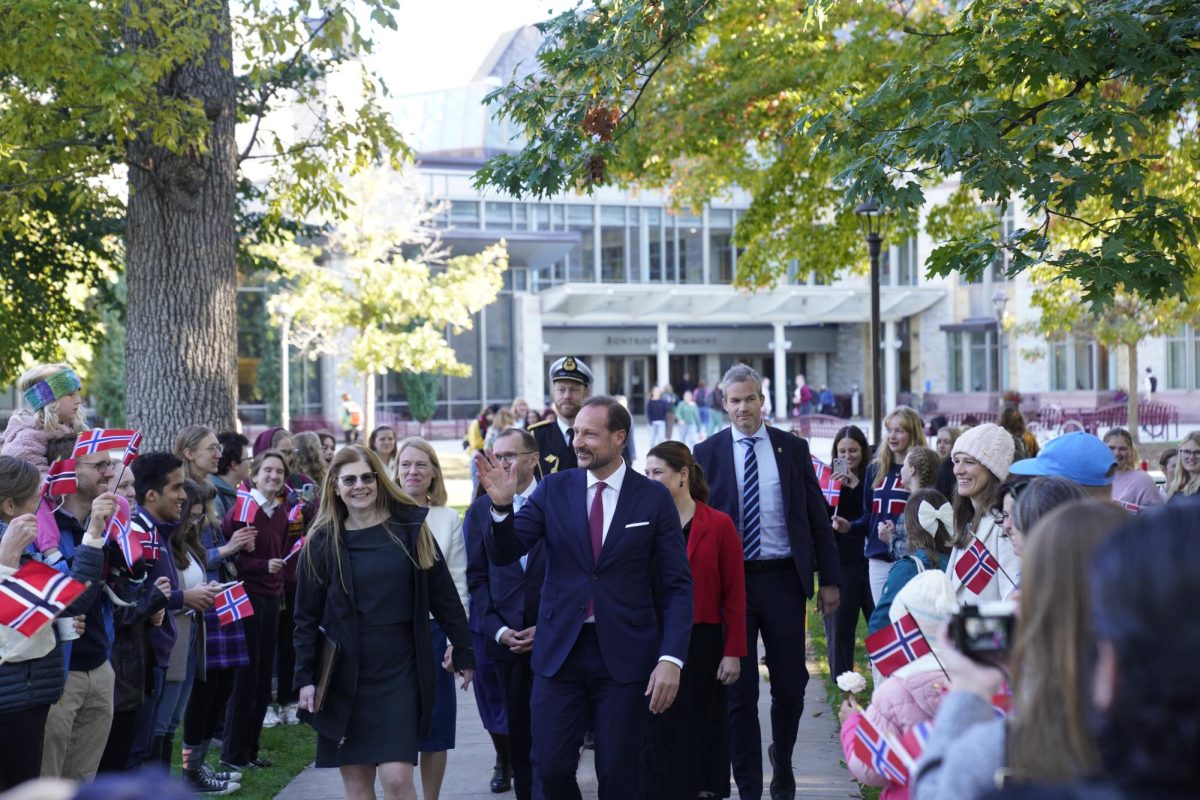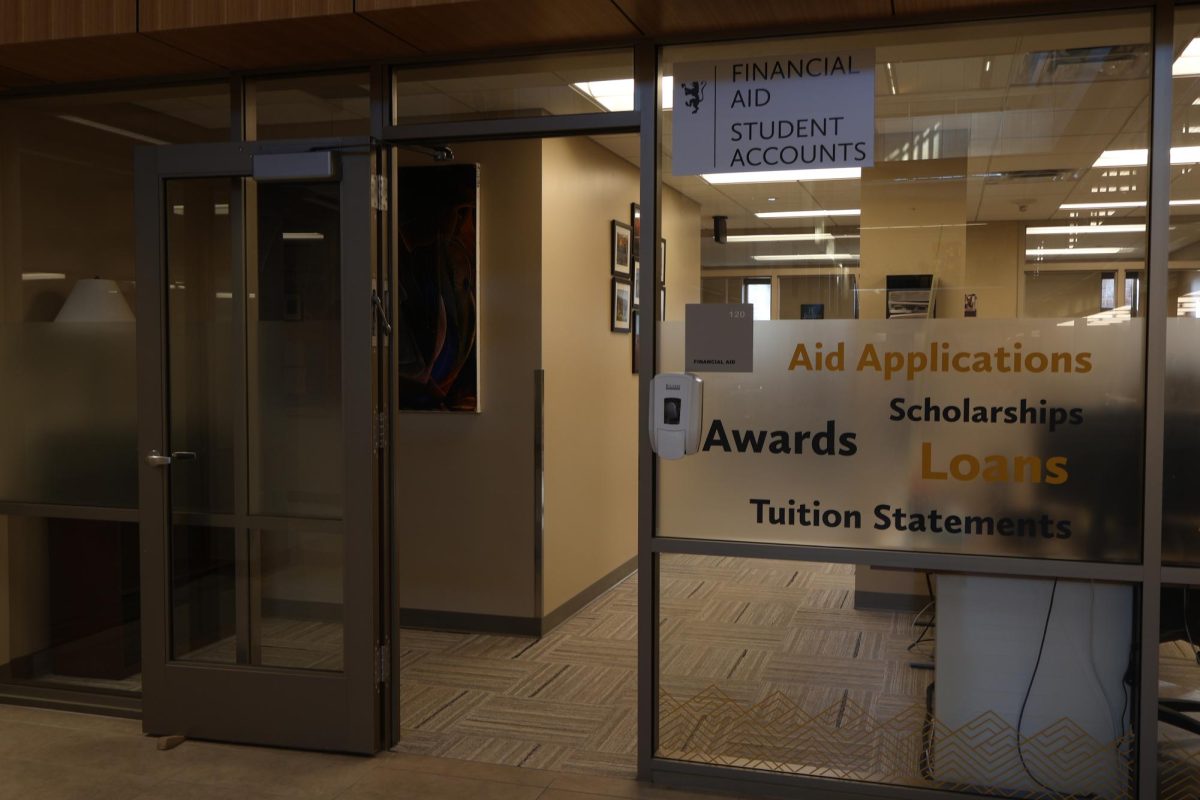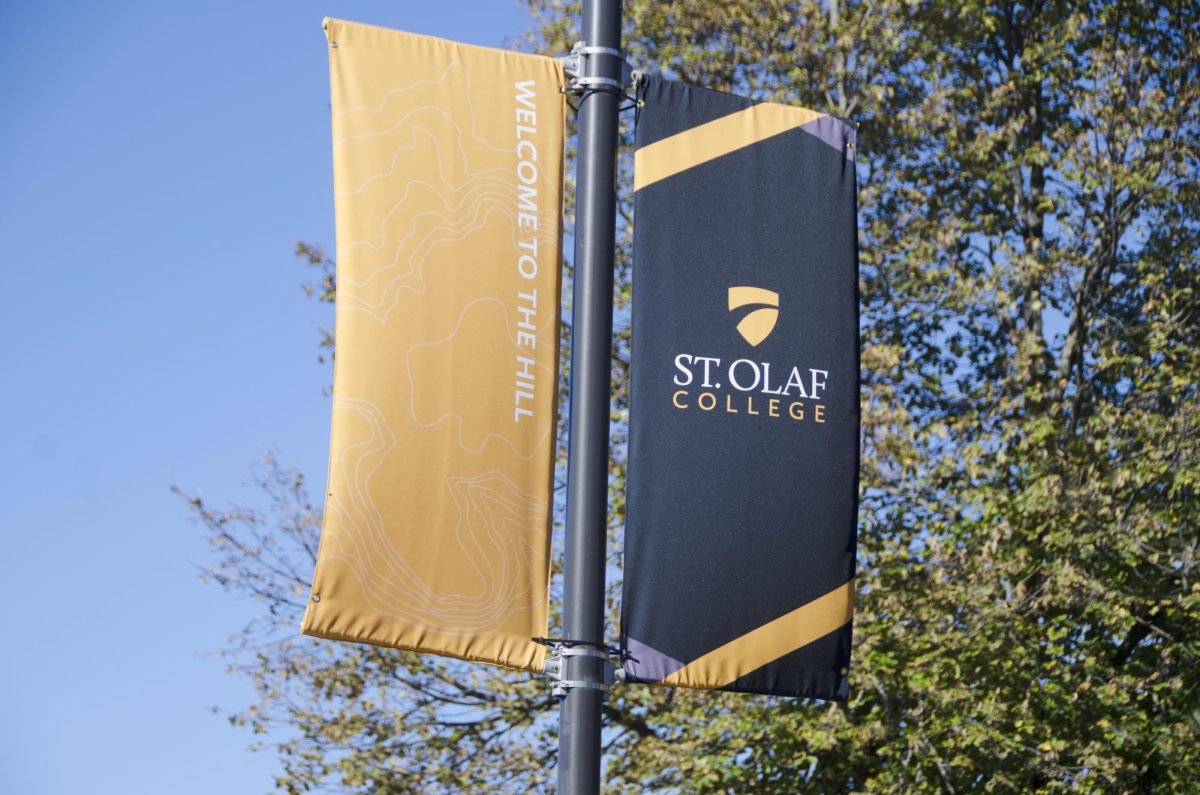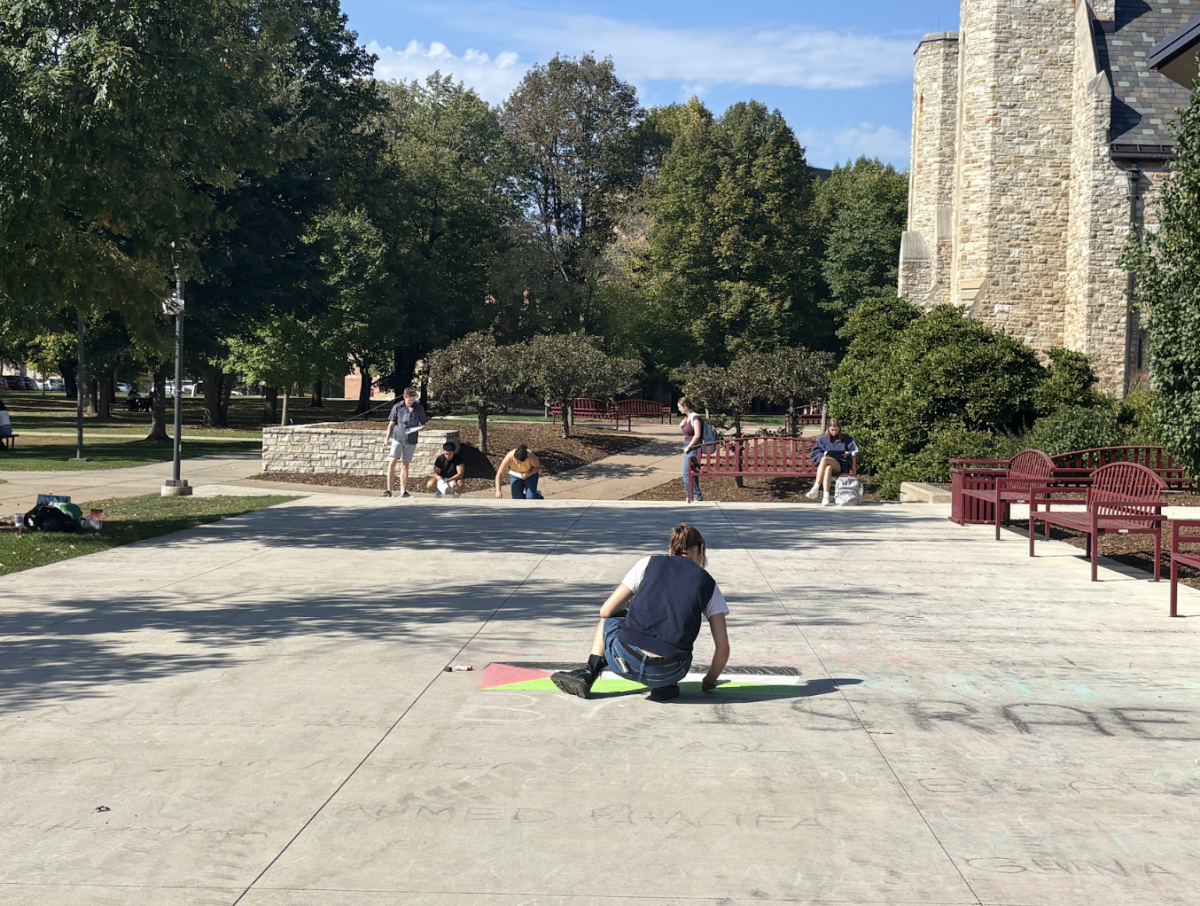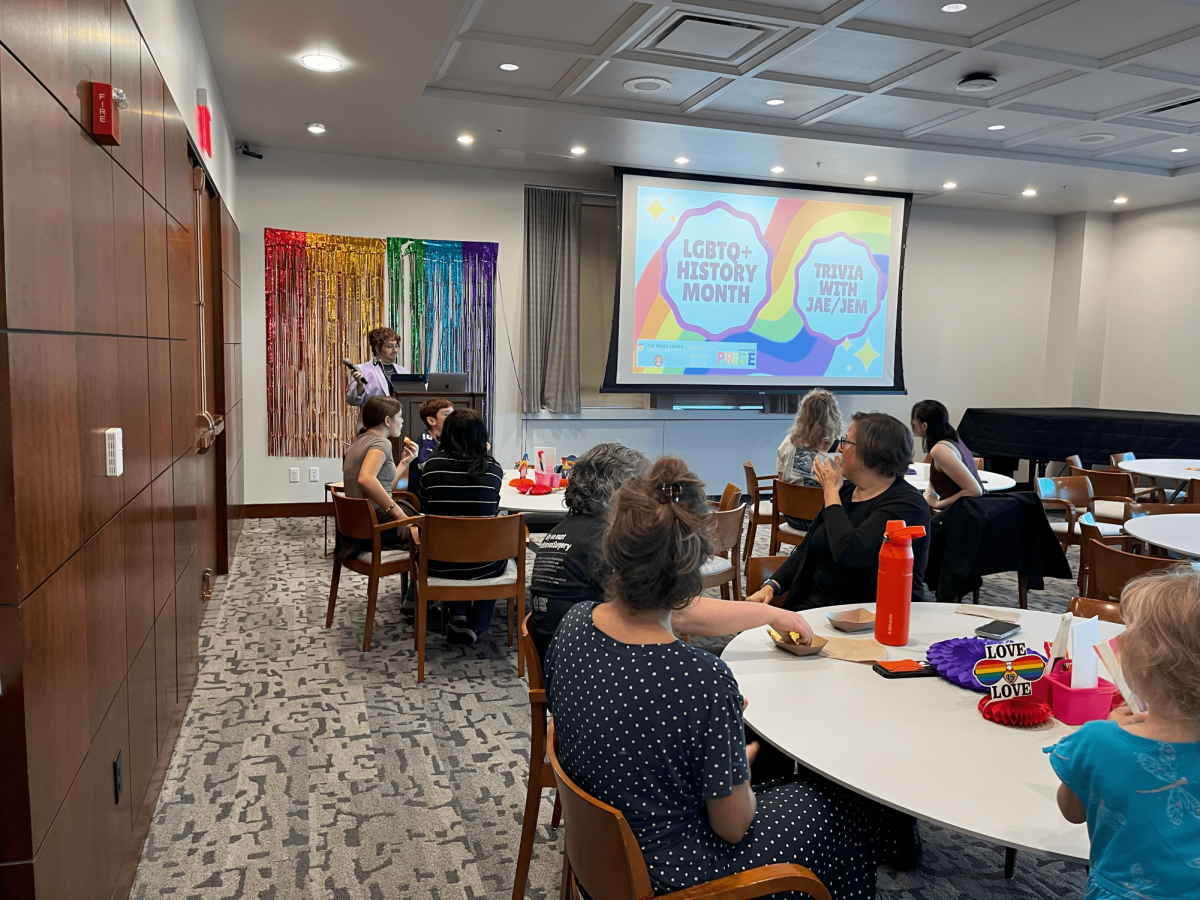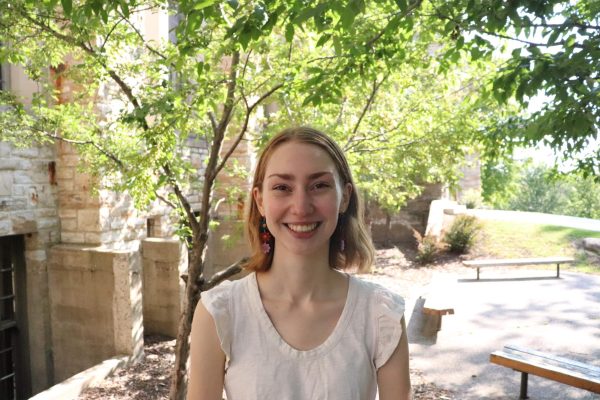On Thursday, Nov. 15, students convened in the King’s Dining Room to listen as members of Professor of Political Science Kris Thalhammer’s Courageous Resistance seminar gave a presentation entitled “Housing for All: St. Olaf’s Role in Local Living.”
Like many others at St. Olaf, PSCI 370 is a course with an Academic Civic Engagement (ACE) component.
According to the Smith Center for Global Engagement webpage, “Academic Civic Engagement (ACE) is an educational approach that encourages students to learn in community contexts. We ask: What can Oles do to make a positive impact in our community? Then we see it through, using what we’ve learned in the classroom to devise and implement real-world solutions.”
When asked to identify and address an injustice facing the community, this group of students looked to the affordable housing options in Northfield and asked, “How can St. Olaf become a better community partner to those who live near the Hill?”
Students in the class divided the presentation into five sub-sections, which groups of two to three individuals took turns presenting to the audience. The first group provided the crowd with background information on the Viking Terrace mobile home community that is located just minutes from campus.
“First we’re going to tell you a story, then we will go through to see what is the role of St. Olaf in that story,” Sofia Chamorro Pilacuan ’25 began, before explaining how the Viking Terrace community faces many challenges, such as limited access to heated water, which has been exacerbated since the property was purchased by Florida-based owner Lakeshore Management in 2022.
The challenges facing the community hits close to home, as Viking Terrace provides housing for both St. Olaf students and employees of Bon Appétit.
Upon learning about the difficulties facing the Viking Terrace community, members of the class were eager to get involved.
“One of the first things we asked as a class was ‘how can we get involved as St. Olaf students who have the privilege of living up here on the Hill?’” Finnian Falvey ’25 said.
In order to get involved, the group partnered with Growing Up Healthy, a Northfield-based non-profit organization that works to support healthy community initiatives.
“We started around 2007,” Growing Up Healthy Director Jennyffer Barrientos said. “Growing Up Healthy came about to address social factors influencing the health of young families in Rice County.”
According to Barrientos, the problems facing Viking Terrace came to the attention of the organization because there was a subset of children who were chronically absent from school due to illness. Upon further investigation, it was discovered that most of these children were living in mobile homes.
“These mobile homes had leaks, they had mold, they had windows that needed repairing, they had doors that needed repairing, and sometimes the water pipes would freeze so they didn’t even have water to brush their teeth,” Barrientos said.
Standing in the way of repairs, however, are financial barriers, a lack of time to complete the repairs, and limited knowledge about how to go about fixing the existing infrastructure.
This is where the Courageous Resistance students come into the picture.
On three Saturdays over the course of the semester, students from the class visited the Viking Terrace community to assist with the repairs needed on many of these mobile home units. Despite the difficulty of the task, the students felt good about having a positive impact on members of their Northfield community.
“Immediately there was positive feedback… they all asked, are you guys going to do this again? Is this going to be a long-term thing? Is this going to be available to us?” Meakin Bang ’25 said.
At the end of the presentation, the student presenters acknowledged that more work is needed to create a lasting impact both at Viking Terrace and within the larger Northfield community.
“ACE projects are often restricted to a class, which only lasts a single semester, so they’re not really great in terms of facilitating a long-term relationship with a community member or community organization,” Kate Heinsch ’26 said.
In response to the question “what else can we do as St. Olaf students?”, Thomas Griffin ’25 said, “Really, we just want people to get involved. We want students to be involved and we want admin to be more involved, whether that be with transparency or through directly volunteering.”
